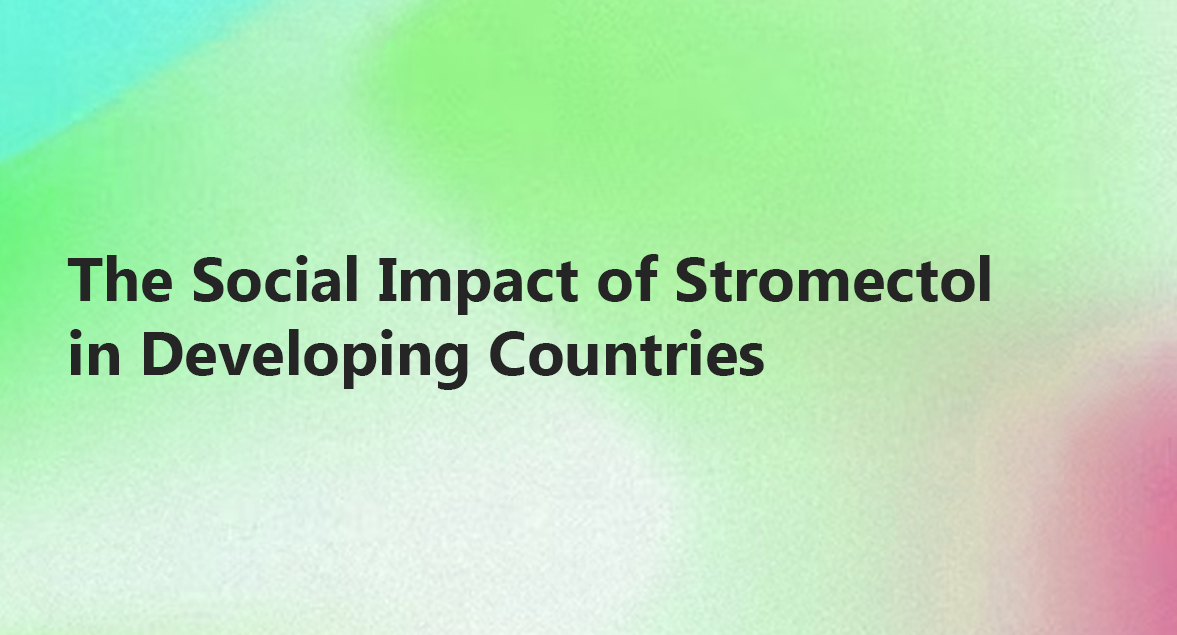Stromectol, also known as Ivermectin, is a medication that has gained significant attention in recent years due to its potential impact on various health issues, particularly in developing countries. Originally developed as an anti-parasitic drug, Stromectol has shown promise in addressing other medical conditions, leading to both hope and controversy. In this article, we will explore the social impact of Stromectol in developing countries, examining its potential benefits and challenges while highlighting its role in healthcare and community development.
Understanding Stromectol and Its Uses
Stromectol is an FDA-approved drug primarily used to treat parasitic infections caused by roundworms, threadworms, and other parasites. It has been widely distributed in many developing countries to combat diseases such as river blindness and lymphatic filariasis, significantly improving public health outcomes. However, in recent times, there have been discussions and studies suggesting that Stromectol might have other potential medical benefits beyond its original intended use.
The COVID-19 Pandemic and Controversies
During the COVID-19 pandemic, some researchers and medical practitioners proposed the use of Stromectol as a potential treatment for the virus. This led to significant debates within the medical community and the general public. While some studies reported positive effects, others had inconclusive or conflicting results. The World Health Organization (WHO) and other regulatory bodies have not approved Stromectol for COVID-19 treatment due to insufficient evidence and potential risks.
Stromectol and Community Health
In many developing countries, where access to healthcare facilities and resources is limited, Stromectol has played a crucial role in improving community health. By treating parasitic infections, it has reduced the burden of these diseases and contributed to enhanced well-being and productivity. Furthermore, successful community-based treatment programs have helped promote awareness of health issues and preventive measures.
Addressing Neglected Tropical Diseases (NTDs)
Neglected Tropical Diseases (NTDs) disproportionately affect people in developing countries, particularly those living in poverty-stricken areas with inadequate healthcare systems. Stromectol has been instrumental in addressing some of these NTDs, making significant strides in controlling diseases like onchocerciasis (river blindness) and strongyloidiasis, thus positively impacting the lives of millions.
Challenges and Concerns
Despite its potential benefits, the use of Stromectol has raised several concerns. One of the main issues is the emergence of drug-resistant parasites, which poses a threat to the effectiveness of treatment programs. Additionally, the off-label use of Stromectol for conditions like COVID-19 has prompted worries about its safety and appropriate dosage.
Promoting Sustainable Healthcare Solutions
To harness the full social impact of Stromectol, it is vital for developing countries to adopt sustainable healthcare solutions. This includes strengthening healthcare infrastructure, training local healthcare professionals, and implementing comprehensive disease surveillance programs. Collaboration between international health organizations, governments, and non-governmental organizations (NGOs) is crucial for achieving lasting improvements in public health.
Stromectol has undoubtedly made a positive social impact in developing countries by addressing parasitic infections and neglected tropical diseases. Its role in community health and well-being cannot be understated. However, as discussions continue regarding its broader medical applications, it is essential to balance potential benefits with scientific evidence and safety considerations. By focusing on sustainable healthcare solutions, developing countries can leverage Stromectol’s potential to achieve significant social and health advancements, ultimately leading to a healthier and more prosperous future for their communities.


Leave a Reply